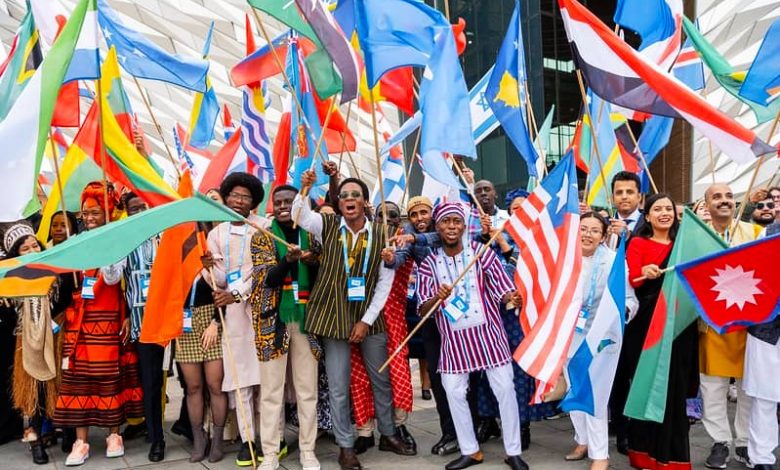World community unites mankind, promotes progress

World community-
may be defined as a system that includes all countries, governments, IGOs and people of the world. This system revolves on the principles of cooperation and reciprocity in the different areas similar as interpersonal relations, legal relations, tactfulness, profitable and marketable intercourse, artistic relations, physical terrain and security.
History
It refers to the idea of world community which appeared in the late nineteenth, as inter dependence between state enhanced. New world order redounded out of World War I and World War II and the conformation of United Nations, an transnational association for Peace and Security.
The primary objects of the World Community include
Maintaining International Peace and Security
world community- by maintaining transnational law — and agreement of controversies.
Protection of mortal rights and centenarian freedoms world community- does this by developing and administering instruments similar as the Universal Declaration of Human Rights.
Promoting healthy and sustainable development Globalized global- strives to lessen poverty, enhance education and save the earth.
International Law and Policy Making Produces norms and regulations for all the parties of the world community.
International Cooperation and Enhancing Understanding Cultural exchange, educational cooperation and exploration collaboration- all affect the world community.
Some important features of the world community are:
Interdependence: It has actually become clear that modern countries cannot exist without relying on other countries in terms of economy, trade, technology and environmental problems. This interdependence makes the complimentary cooperation of their efforts even more essential.
Multiplicity: The world community- is not only composed of states. They embrace NGOs, multinational companies, international organizations, individuals, etc. These diversity raises the level of difficulty in managing international relations and the challenges of policy making and Listener implementation.
Dynamics: The global community is-is constantly evolving. New states emerge; some states shrink in power; technology evolves; sociology-political movements shift the balance of power and the character of world politics.
Main Institute:
Several international organizations play an important role in regulating and coordinating the activities of the global community- These include:
United Nations (UN): The United Nations is the premier organization of the international system Its functions are to prevent and alleviate armed conflicts, preserve the rights of the persons and foster cooperation in economic and social spheres.
World Trade Organization (WTO): The WTO oversees globalization and dedication towards removing trade barriers among-st nations. International Monetary Fund (IMF): IMF support stability of the international monetary system and cope with issues of one or another country in questions relating to financing. North Atlantic Treaty Organization (NATO): NATO is a defense union whose aim is to safeguard the defenseless countries.
